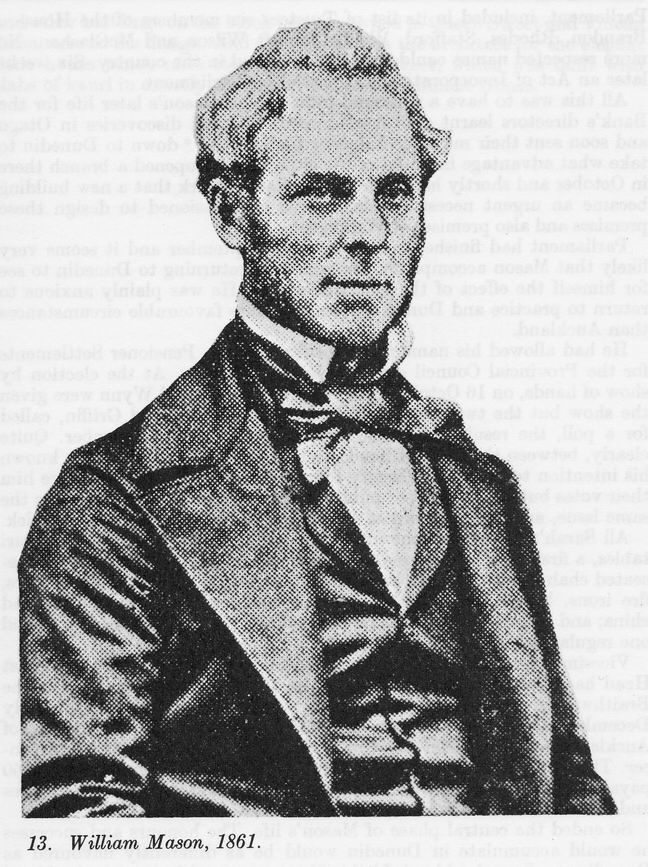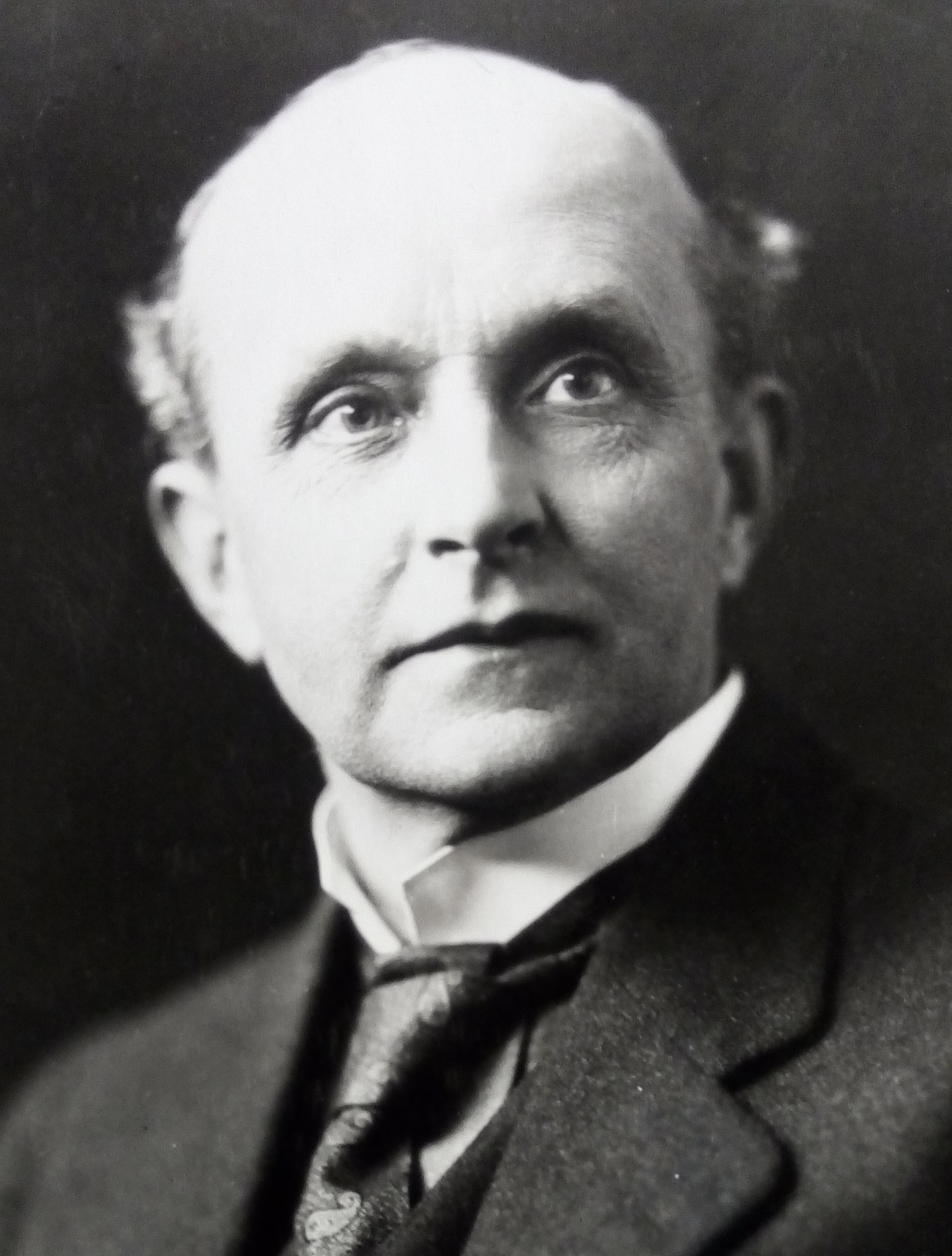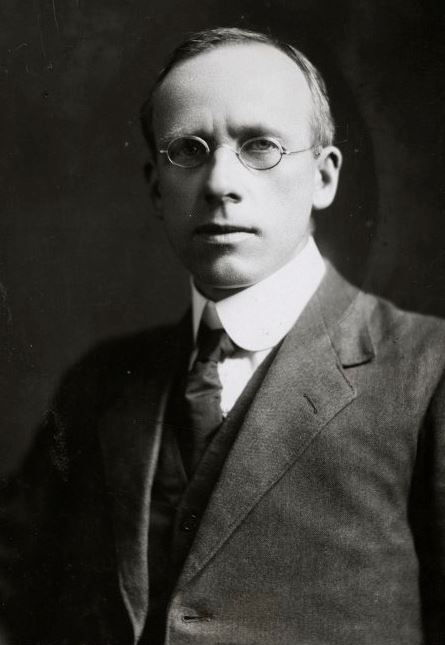|
Phil Connolly
Philip George Connolly (14 November 1899 – 13 February 1970) was a New Zealand politician of the Labour Party. Early life Connoly was born in Dunedin on 14 November 1899 to Hugh Babbington Connolly and Evelyn Emily Connolly (née Smith). He was educated at McAndrew Road School and Otago Boys' High School until leaving school in 1914 upon the death of his father to work for a living as an apprentice fitter. He also worked for New Zealand Railways Department at the Hillside Workshops. Upon the completion of his apprenticeship he gained employment at the Union Steam Ship Company as a marine engineer. He was later elected a member of the Institute of Marine and Power Engineers union and was chairman of the Hillside branch of the Amalgamated Society of Railway Servants and later its secretary. Military career In 1928 he was a foundation member of the Otago Division of the Royal New Zealand Naval Volunteer Reserve and was commissioned as an officer with the rank of Lieutenant. ... [...More Info...] [...Related Items...] OR: [Wikipedia] [Google] [Baidu] |
The Honourable
''The Honourable'' (British English) or ''The Honorable'' (American English; see spelling differences) (abbreviation: ''Hon.'', ''Hon'ble'', or variations) is an honorific style that is used as a prefix before the names or titles of certain people, usually with official governmental or diplomatic positions. Use by governments International diplomacy In international diplomatic relations, representatives of foreign states are often styled as ''The Honourable''. Deputy chiefs of mission, , consuls-general and consuls are always given the style. All heads of consular posts, whether they are honorary or career postholders, are accorded the style according to the State Department of the United States. However, the style ''Excellency'' instead of ''The Honourable'' is used for ambassadors and high commissioners. Africa The Congo In the Democratic Republic of the Congo, the prefix 'Honourable' or 'Hon.' is used for members of both chambers of the Parliament of the Democratic Repu ... [...More Info...] [...Related Items...] OR: [Wikipedia] [Google] [Baidu] |
Mayor Of Dunedin
The Mayor of Dunedin is the head of the local government, the city council of Dunedin, New Zealand. The Mayor's role is "to provide leadership to the other elected members of the territorial authority, be a leader in the community and perform civic duties". The Mayor is directly elected, using the Single Transferable Vote (STV) system from 2007. The current mayor is Jules Radich who was elected in 2022. The mayor has always been elected at large, with the inaugural election in 1865. Up until 1915, the term of mayor was for one year only. From 1915 to 1935, the term was two years. Since the 1935 mayoral election, the term has been three years. The role of deputy mayor was established in 1917. The city council translates the office and title of mayor as Te Koromatua o Ōtepoti.for example on this plan consultation page on their websiteIntroduction , He kupu whakatakion DCC website, viewed 2022-11-03 List of mayors of Dunedin ;Key Notes References * External links D ... [...More Info...] [...Related Items...] OR: [Wikipedia] [Google] [Baidu] |
Senior Whip Of The Labour Party
The New Zealand Labour Party's Senior Whip administers the " whipping in" system that tries to ensure that party MPs attend and vote according to the party leadership's wishes. The position is elected by the Labour caucus members. The Senior Whip also acts as an intermediary between the backbenchers and the party leadership. Whenever Labour is in government the senior whip serves as the Chief Government Whip and when out of government serves as Chief Opposition Whip. All Labour whips have been members of the House of Representatives, with none coming from the Legislative Council before its abolition in 1950. The current senior whip is Duncan Webb. List The following is a list of all senior whips of the Labour Party: See also *Senior Whip of the National Party *Senior Whip of the Liberal Party The Liberal Party's Senior Whip was a political post in New Zealand. The whip's task was to administer the " whipping in" system that attempts to ensure that party MPs attend and v ... [...More Info...] [...Related Items...] OR: [Wikipedia] [Google] [Baidu] |
Peter Fraser
Peter Fraser (; 28 August 1884 – 12 December 1950) was a New Zealand politician who served as the 24th prime minister of New Zealand from 27 March 1940 until 13 December 1949. Considered a major figure in the history of the New Zealand Labour Party, he was in office longer than any other Labour prime minister, and is to date New Zealand's fourth- longest-serving head of government. Born and raised in the Scottish Highlands, Fraser left education early in order to support his family. While working in London in 1908, Fraser joined the Independent Labour Party, but unemployment led him to emigrate to New Zealand in 1910. On arrival in Auckland, he gained employment as a wharfie and became involved in union politics upon joining the New Zealand Socialist Party. In 1916, Fraser was involved in the foundation of the unified Labour Party. He spent one year in jail for sedition after speaking out against conscription during the First World War. In 1918, Fraser won a Wellington by ... [...More Info...] [...Related Items...] OR: [Wikipedia] [Google] [Baidu] |
1963 New Zealand General Election
The 1963 New Zealand general election was a nationwide vote to determine the shape of New Zealand Parliament's 34th term. The results were almost identical to those of the previous election, and the governing National Party remained in office. Background The 1960 election had been won by the National Party, beginning New Zealand's second period of National government. Keith Holyoake, who had briefly been Prime Minister at the end of the first period, returned to office. The elderly leader of the Labour Party, Walter Nash, had agreed to step down following his government's defeat, but disliked the prospect of being succeeded by his Minister of Finance, Arnold Nordmeyer. Nash instead backed first Jerry Skinner and then, after Skinner's death, Fred Hackett. In the end, however, Nordmeyer was victorious. Nordmeyer, however, was unpopular with the general public, being remembered with hostility for the tax hikes in his so-called 'Black Budget'. Labour struggled to overcome this n ... [...More Info...] [...Related Items...] OR: [Wikipedia] [Google] [Baidu] |
1946 New Zealand General Election
The 1946 New Zealand general election was a nationwide vote to determine the shape of the New Zealand Parliament's 28th term. It saw the governing Labour Party re-elected, but by a substantially narrower margin than in the three previous elections. The National Party continued its gradual rise. Background The Labour Party had been in government since winning the 1935 elections, and had been re-elected twice. However, the National Party had managed to overcome the internal problems which had once troubled it, and now presented a credible threat to Labour. National's leader, Sidney Holland, was proving more effective than his predecessor, while the Prime Minister, Peter Fraser, was weary and in poor health. The after-effects of World War II, including ongoing shortages, were affecting the government's popularity. The next New Zealand census was scheduled for 1946, but having had to postpone the 1941 census due to WWII, the government brought it forward. The 1945 census was h ... [...More Info...] [...Related Items...] OR: [Wikipedia] [Google] [Baidu] |
1943 New Zealand General Election
The 1943 New Zealand general election was a nationwide vote to determine the shape of the New Zealand Parliament's 27th term. With the onset of World War II, elections were initially postponed, but it was eventually decided to hold a general election in September 1943, around two years after it would normally have occurred. The election saw the governing Labour Party re-elected by a comfortable margin, although the party nevertheless lost considerable ground to the expanding National Party. Background The Labour Party had formed its first government after its resounding victory in the 1935 elections and had been re-elected by a substantial margin in the 1938 elections. Michael Joseph Savage, the first Labour Prime Minister, died in 1940; he was replaced by Peter Fraser, who was widely viewed as competent even if he was less popular than Savage. In the same year as Fraser took power, however, the opposition National Party had replaced the ineffectual Adam Hamilton with Sidne ... [...More Info...] [...Related Items...] OR: [Wikipedia] [Google] [Baidu] |
The Star (Dunedin)
''The Star'' is a free newspaper published weekly in Dunedin, New Zealand by Allied Press since 1979. It is the successor to ''The Evening Star'', which was the city's daily evening newspaper from June 1863 to 1979. History Bell era ''The Star'' was founded as the ''Evening Star'' in 1863 with the first issue appearing on 1 May 1863. It was founded by G. A. Henningham and Co., edited by George Henningham, and originally printed in Stafford Street, above the Exchange area of the city. In its first few years the company was bought by William Henningham, the founder's brother. In June 1869, William Henningham ran into financial difficulties and the ''Evening Star'' was sold by liquidators to George Bell, who also ran a small evening paper, the ''Evening Independent''. Bell merged the two newspapers to form firstly the short-lived ''Morning Star'', and then the far more successful ''Evening Star'', which was first published under this title on 14 June 1869. Under Bell's editorship t ... [...More Info...] [...Related Items...] OR: [Wikipedia] [Google] [Baidu] |
Otago Daily Times
The ''Otago Daily Times'' (ODT) is a newspaper published by Allied Press Ltd in Dunedin, New Zealand. The ''ODT'' is one of the country's four main daily newspapers, serving the southern South Island with a circulation of around 26,000 and a combined print and digital annual audience of 304,000. Founded in 1861 it is New Zealand's oldest surviving daily newspaper – Christchurch's ''The Press'', six months older, was a weekly paper until March 1863. Its motto is "Optima Durant" or "Quality Endures". History Founding The ''ODT'' was founded by William H. Cutten and Julius (later Sir Julius) Vogel during the boom following the discovery of gold at the Tuapeka, the first of the Otago goldrushes. Co-founder Vogel had learnt the newspaper trade while working as a goldfields correspondent, journalist and editor in Victoria prior to immigrating to New Zealand. Vogel had arrived in Otago in early October 1861 at the age of 26 and soon took up employment at the ''Otago Colonist'', ... [...More Info...] [...Related Items...] OR: [Wikipedia] [Google] [Baidu] |
Dunedin City Council
The Dunedin City Council ( mi, Kaunihera ā-Rohe o Ōtepoti) is the local government authority for Dunedin in New Zealand. It is a territorial authority elected to represent the people of Dunedin. Since October 2022, the Mayor of Dunedin is Jules Radich, who succeeded Aaron Hawkins. The council consists of a mayor who is elected at large, and 14 councillors elected at large, one of whom gets chosen as deputy-mayor. The councillors are elected under the Single Transferable Vote Single transferable vote (STV) is a multi-winner electoral system in which voters cast a single vote in the form of a ranked-choice ballot. Voters have the option to rank candidates, and their vote may be transferred according to alternate p ... (STV) system in triennial elections, with the most recent election held on 8 October 2022. 2022–present The current composition of the council is as follows: 2019–2022 During the 2019–2022 term the composition of the Council was as follow: 2016� ... [...More Info...] [...Related Items...] OR: [Wikipedia] [Google] [Baidu] |
Dunedin Central
Dunedin Central was a parliamentary electorate in the city of Dunedin in Otago, New Zealand from 1881 to 1890 and 1905 to 1984. Population centres The previous electoral redistribution was undertaken in 1875 for the 1875–1876 election. In the six years since, New Zealand's European population had increased by 65%. In the 1881 electoral redistribution, the House of Representatives increased the number of European representatives to 91 (up from 84 since the 1875–1876 election). The number of Māori electorates was held at four. The House further decided that electorates should not have more than one representative, which led to 35 new electorates being formed, including Dunedin Central, and two electorates that had previously been abolished to be recreated. This necessitated a major disruption to existing boundaries. History Thomas Bracken, who at the had unsuccessfully contested the electorate, was the first representative. At the , Bracken was defeated by James Benn Bradsh ... [...More Info...] [...Related Items...] OR: [Wikipedia] [Google] [Baidu] |



.jpg)

.jpg)